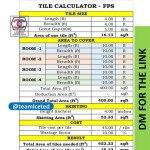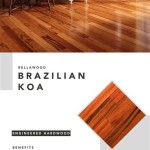```html
Different Types of Tile Flooring
Tile flooring represents a durable and aesthetically versatile option for covering floors in residential and commercial settings. The market offers a wide array of tile types, each possessing unique characteristics, advantages, and drawbacks. Understanding the distinctions between these types is crucial for selecting the most appropriate option for a specific application.
The selection process should consider factors such as budget, traffic levels, moisture exposure, intended aesthetic, and maintenance requirements. Choosing the wrong tile can lead to premature wear, costly repairs, or an undesirable ambiance. This article elaborates on the main types of tile flooring, providing a comprehensive overview to facilitate informed decision-making.
Ceramic Tile
Ceramic tile is perhaps the most commonly encountered type of tile flooring. It’s manufactured by baking a mixture of clay, minerals, and water at high temperatures. The result is a hard, durable surface that is resistant to water, stains, and scratches. Ceramic tile is generally more affordable compared to other tile options, making it a popular choice for budget-conscious homeowners and builders.
There are two primary categories of ceramic tile: glazed and unglazed. Glazed ceramic tile has a coating applied during the manufacturing process which provides a protective layer and enhances its aesthetic appeal. This glaze can come in a variety of colors, patterns, and finishes, offering a wide range of design possibilities. Unglazed ceramic tile, on the other hand, lacks this protective coating and typically has a more rustic or natural appearance. While unglazed tile can be more slip-resistant, it's also more porous and susceptible to staining, therefore requiring sealing.
Ceramic tile is suitable for a wide range of applications, including bathrooms, kitchens, hallways, and entryways. Its water resistance makes it particularly well-suited for areas prone to moisture. While relatively durable, ceramic tile can chip or crack under heavy impact. It's also cooler underfoot than some other flooring options, which can be a consideration in colder climates.
Porcelain Tile
Porcelain tile is a subset of ceramic tile, but it's distinguished by its manufacturing process and resulting properties. Porcelain tile is made from finer clay and fired at higher temperatures, resulting in a denser, less porous material. This process gives porcelain tile superior strength, durability, and water resistance compared to standard ceramic tile. Because of its low porosity (generally less than 0.5%), porcelain is extremely resistant to staining and water damage.
Porcelain tile is an excellent choice for high-traffic areas such as commercial buildings, restaurants, and busy households. It's highly resistant to scratching, chipping, and fading, ensuring a long lifespan. Due to its water resistance, it’s suitable for both indoor and outdoor applications, including patios, decks, and swimming pool areas. Porcelain tile is available in a vast array of styles, colors, and textures, including options that mimic natural stone, wood, and concrete.
The higher cost of porcelain tile compared to ceramic tile is a noteworthy factor. Installation can also be more complex due to the tile’s density and hardness, potentially requiring specialized tools and expertise. Despite the higher upfront cost, the long-term durability and low maintenance requirements of porcelain tile can make it a cost-effective option over time.
Natural Stone Tile
Natural stone tile encompasses a variety of materials quarried directly from the earth, including granite, marble, slate, travertine, and limestone. Each type of stone possesses unique characteristics in terms of color, pattern, texture, and durability. Natural stone tile offers a distinctive and luxurious aesthetic that is difficult to replicate with manufactured materials.
Granite is known for its exceptional hardness and durability, making it ideal for high-traffic areas and countertops. Marble is prized for its elegant veining and smooth texture, often used in bathrooms and entryways. Slate offers a rustic and textured appearance, suitable for both indoor and outdoor applications. Travertine is characterized by its distinctive pitted surface, providing a natural and earthy look. Limestone is a softer stone with a more muted color palette, often used in areas where a warmer aesthetic is desired.
Natural stone tile generally requires sealing to protect against staining and moisture penetration. The porosity of the stone varies depending on the type, with some varieties being more absorbent than others. Proper cleaning and maintenance are essential to preserve the beauty and longevity of natural stone tile. The cost of natural stone tile can be significantly higher than ceramic or porcelain tile, reflecting the inherent value of the material and the labor-intensive extraction and processing involved.
Glass Tile
Glass tile is a decorative option often used as an accent or backsplash, although it can also be used for flooring in certain applications. It is created by shaping glass into various sizes and forms. Glass tile offers a unique aesthetic with its translucent and reflective properties, creating a sense of light and spaciousness. It is available in a wide range of colors, shapes, and sizes, allowing for intricate and customized designs.
Glass tile is highly resistant to stains, water, and chemicals, making it suitable for bathrooms, kitchens, and swimming pool areas. It is also relatively easy to clean and maintain. However, glass tile is generally less durable than ceramic or porcelain tile and more prone to scratching or chipping. It's therefore less suitable for high-traffic areas or areas where heavy objects are likely to be dropped.
The installation of glass tile can be more complex than other tile types, requiring specialized adhesives and cutting techniques to prevent cracking or chipping. The cost of glass tile can vary widely depending on the size, shape, and quality of the material. While not generally used as a primary flooring material throughout an entire room, glass tile can add a touch of elegance and sophistication as an accent or decorative element.
Cement Tile
Cement tile, also known as encaustic cement tile, is a handcrafted tile made from cement, pigments, and mineral powders. Unlike ceramic or porcelain tile, cement tile is not fired in a kiln. Instead, it is hydraulically pressed, resulting in a dense and durable tile with a unique aesthetic. Cement tile often features intricate patterns and vibrant colors, making it a popular choice for creating visually striking floors and walls.
Cement tile is known for its durability and longevity, capable of withstanding heavy foot traffic and everyday wear and tear. However, it is also porous and requires sealing to protect against staining and moisture penetration. Regular cleaning and maintenance are essential to preserve the beauty and vibrancy of cement tile. Over time, cement tile develops a natural patina that adds to its character and charm.
The installation of cement tile requires careful attention to detail, including proper substrate preparation and sealing. Due to its handcrafted nature and the labor-intensive manufacturing process, cement tile is generally more expensive than ceramic or porcelain tile. However, its unique aesthetic and durability make it a worthwhile investment for those seeking a distinctive and long-lasting flooring option. It is well-suited for vintage-inspired designs, adding character to more modern spaces.
Quarry Tile
Quarry tile is a type of unglazed tile made from a mixture of clay, shale, and other natural materials. It is pressed into shape and fired at high temperatures, resulting in a dense and durable tile with a rustic, natural appearance. Quarry tile is known for its slip resistance, making it a popular choice for commercial kitchens, restaurants, and other areas where safety is a concern.
Quarry tile is highly resistant to water, stains, and chemicals, making it suitable for demanding environments. It is also relatively easy to clean and maintain. The color palette of quarry tile is typically limited to earthy tones such as red, brown, and gray, reflecting the natural color of the clay used in its production. While traditionally unglazed, some quarry tiles may have a sealant applied for enhanced stain resistance.
Quarry tile is a cost-effective and durable flooring option for both indoor and outdoor applications. Its slip resistance makes it particularly well-suited for areas prone to moisture or spills. While its aesthetic may be less refined than some other tile types, quarry tile offers a practical and functional solution for demanding environments that prioritize safety and durability.
Terracotta Tile
Terracotta tile, derived from the Italian words for "baked earth," has a warm and rustic appeal that resonates with natural and historical styles. It is made from a porous, reddish-brown clay that is fired at a low temperature. This results in a relatively soft and absorbent tile, requiring sealing to protect against moisture and staining. Terracotta tile brings an earthy and natural atmosphere to any room.
The color of terracotta tile ranges from light buff to deep reddish-brown, offering a warm and inviting aesthetic. The tiles are typically left unglazed, preserving their natural texture and color variations. These variations add to the unique character of terracotta flooring. While beautiful, its porous nature dictates that it should always be properly sealed and maintained to prevent damage from water and other liquids.
Terracotta tile is often used in sunrooms, patios, and kitchens creating a relaxed and inviting atmosphere. While relatively durable, terracotta tile is more susceptible to scratching and chipping than other tile types, particularly in high traffic areas. Regular cleaning and resealing are necessary to maintain its beauty and structural integrity over time. It is a favorite in Mediterranean and Southwestern styles.
```
Types Of Floor Tile What Contractors Really Need To Know

Diffe Types Of Tile Flooring Kitchen Natural Stone

Types Of Floor Tile What Contractors Really Need To Know

The 12 Diffe Kinds Of Tile Popular Types For Floors Walls

Diffe Types Of Tiles With S Tile Restoration

What Are The Diffe Types Of Tile Flooring

Tile Flooring Guide Types And S Forbes Home
20 Types Of Floor Tiles Your 2024 Guide Floorings

Types Of Man Made Tiles And Natural Stone

12 Diffe Types Of Tiles The Complete Guide Wale
Related Posts








